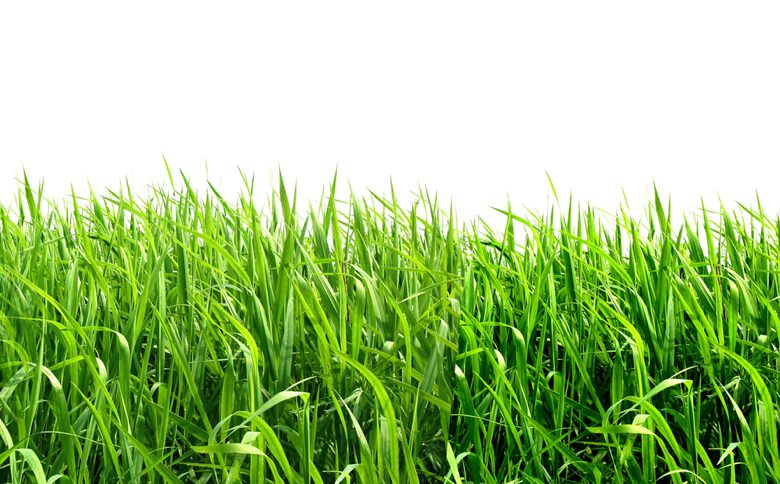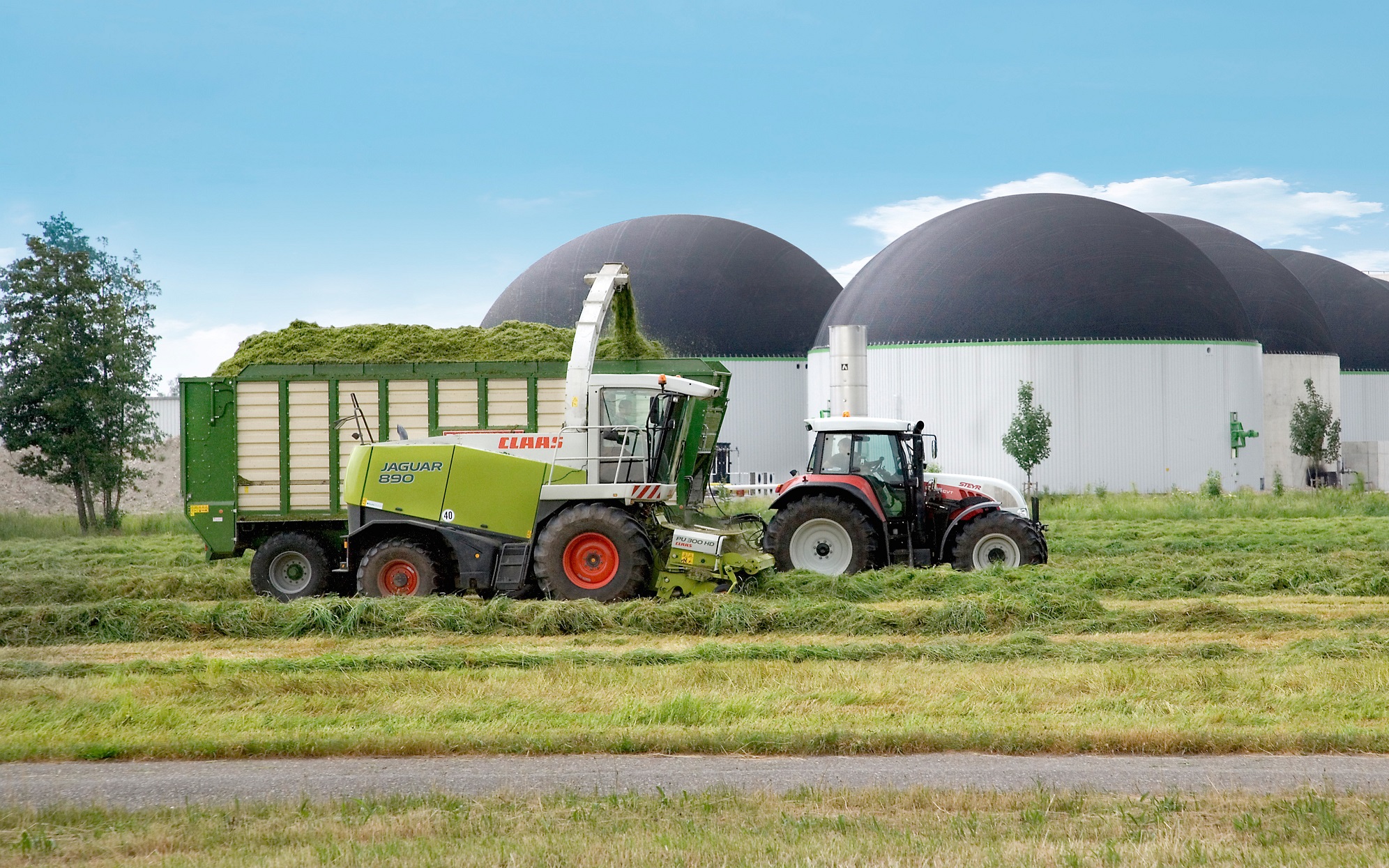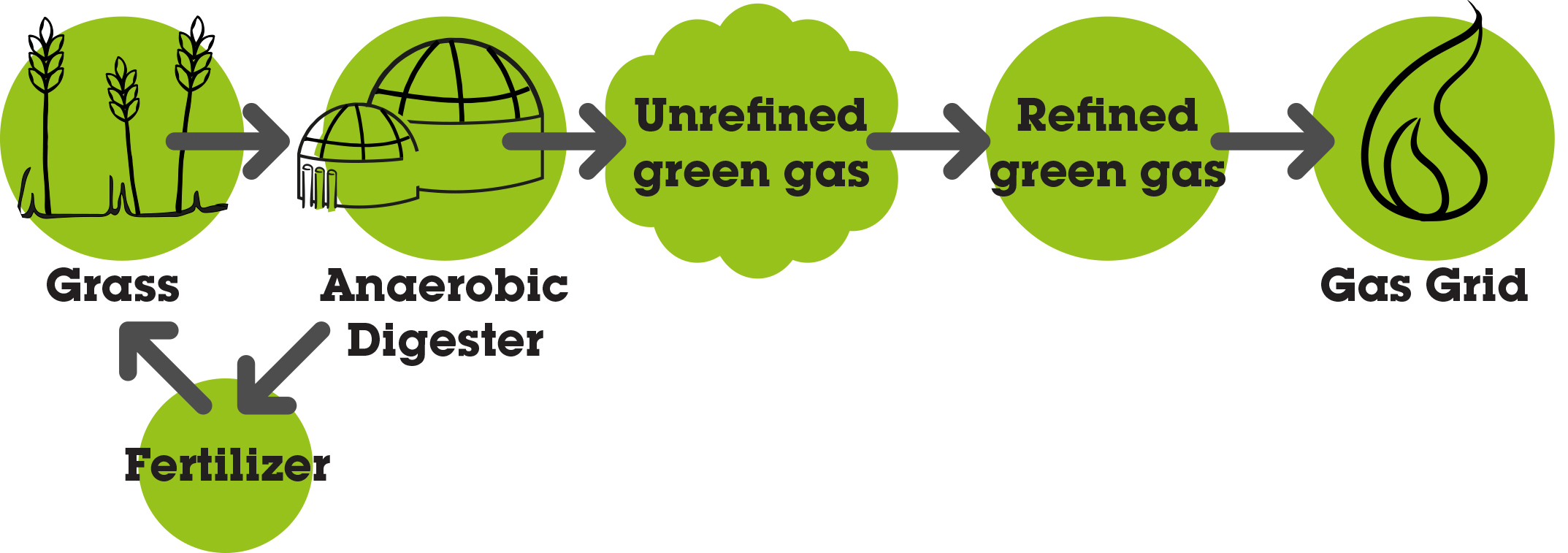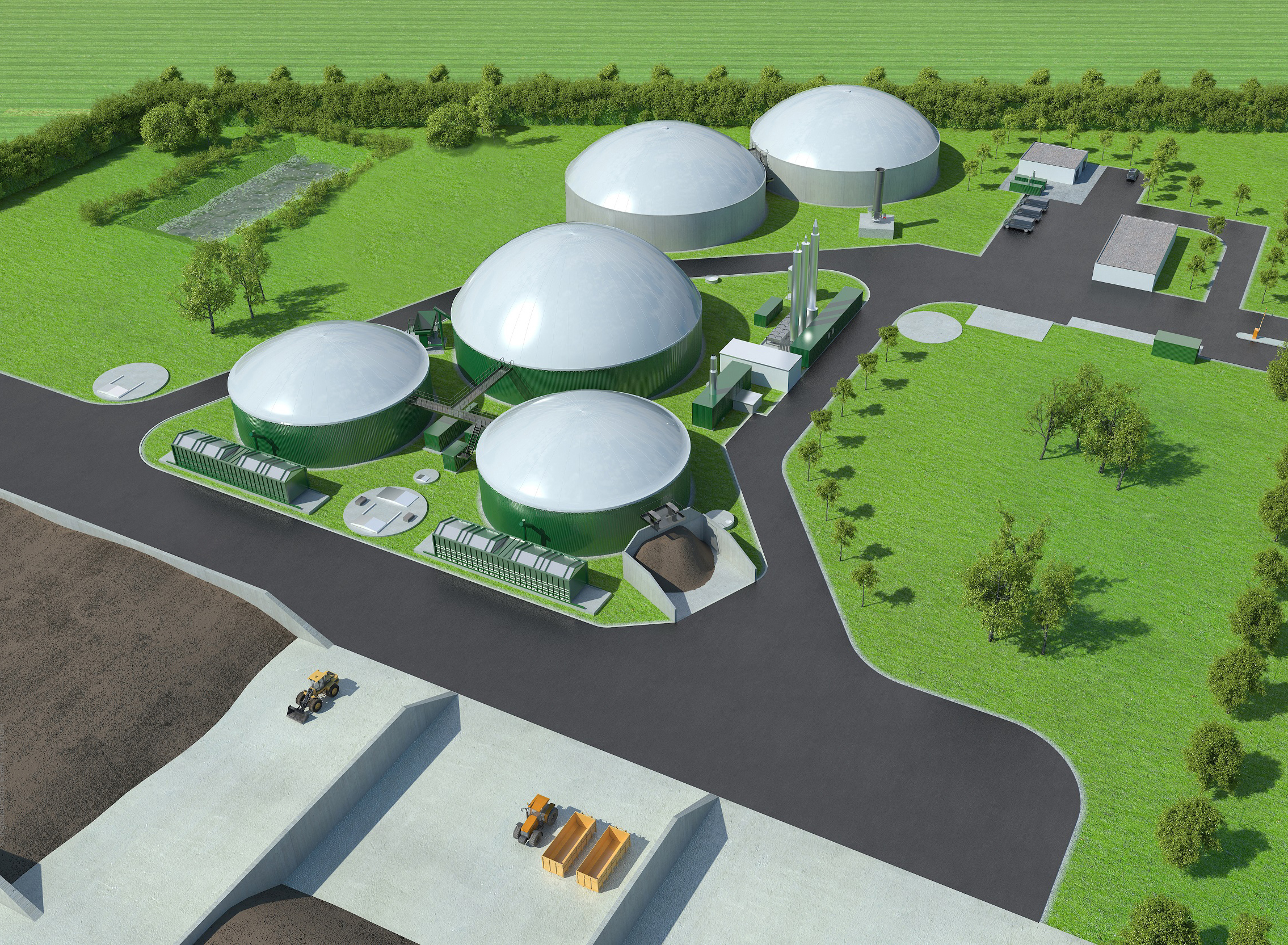Gas from grass: The bold plan which could end the fracking debate, and boost farming
A bold new scheme is in place which claims to be able to kill off the idea of fracking, give us a hugely-important source of sustainable energy - and boost the British farming community at the same time.

Exquisite houses, the beauty of Nature, and how to get the most from your life, straight to your inbox.
You are now subscribed
Your newsletter sign-up was successful
An end to fracking, a boost to farming, and a simple, easy way to replace one of our most important carbon-based energy sources?
No, this isn’t the latest dream of the modern-day alchemists trying to make cars which run on water. Instead, it’s the vision of Ecotricity, a British power company focusing on renewable sources of energy, who have a plan to make gas from grass - and turn it into a major new industry.
The firm, backed by millionaire businessman Dale Vince, has set its sights on providing a new, renewable source to replace the natural gas which currently comes from the (dwindling) North Sea reserves, as well as the likes of Norway and Qatar. Instead of drawing the gas from the bowels of the planet, Ecotricity claims that it can be created from grass on a large scale – and they have put into motion plans to build a new plant which will prove the concept.

The idea sounds simple: grass is grown and harvested, then broken down in a ‘anaerobic digester’ and thereafter turned into biomethane that – at least in theory – could be refined to a sufficient quality that it could be added straight into the existing natural gas network. That process of transformation should take just 45 days.

Vince has sunk £10 million into the project, which has recently received planning permission to build a prototype plant at Sparsholt College, near Winchester.
‘It’s become possible to make green gas and put it into the grid, in the same way we’ve been doing with green electricity for the last two decades,’ explains Vince.
‘The current way of doing that is through energy crops and food waste – but both have their drawbacks.
Exquisite houses, the beauty of Nature, and how to get the most from your life, straight to your inbox.
‘Through our research, we’ve found that using grass is a better alternative, and has none of the drawbacks of energy crops, food waste or fracking – in fact, it has no drawbacks at all.’

The research that Vince refers to is a report put out by the company looking at the viability of gas from grass.
‘We now have a more than viable alternative to fracking, which people have been fighting tooth and nail up and down the country to prevent,’ adds Vince.
‘It’s not too late, because fracking hasn’t started yet. We need a proper review of where Britain gets its gas from – we can either frack the countryside or we can grow the grass. It’s that simple.’
The company press release contains a mild threat aimed at the government, suggesting that the building of the new plant won’t go ahead without government subsidies: ‘[It] does depend on whether government energy policy will support this simple, benign and abundant energy source ,’ says Vince.
His case is backed up by words from Liberal Democrat MP Lynne Featherstone and Greenpeace’s chief scientist Doug Parr, the latter saying that, ‘as long as it’s not competing with food production, green gas like this project can be really helpful in getting the UK onto a cleaner and lower carbon path.’

Vince claims that agriculture will not be affected at all, point to figures suggesting that there are six million hectares of land across the country which are unsuitable for arable farming, but which can be used for grass. Should all that land be dedicated to producing gas via grass, Ecotricity claim that it could meet the needs of 97% of current gas usage in Britain – as well as providing a £7.5bn industry and ‘up to 150,000 jobs’.
More reliance on things being grown rather than imported will, of course, be good news for farmers – as the company’s press release points out: ‘making green gas from grass… will support food production by improving soils, create wildlife habitats, and allow farmers to financially diversify in the face of lost EU subsidies following Brexit.’
Fracking, Brexit and farming subsidies – there’s no denying that Ecotricity know the right buzzwords to use when trying to get their name out there. If they can prove to be as canny when it comes to getting this audacious scheme up and running, then there could be a lot of beneficiaries.
And once they’ve got this project cracked? It’ll be time for the company’s best brains to get working on that car which runs on water...
Toby Keel is Country Life's Digital Director, and has been running the website and social media channels since 2016. A former sports journalist, he writes about property, cars, lifestyle, travel, nature.

